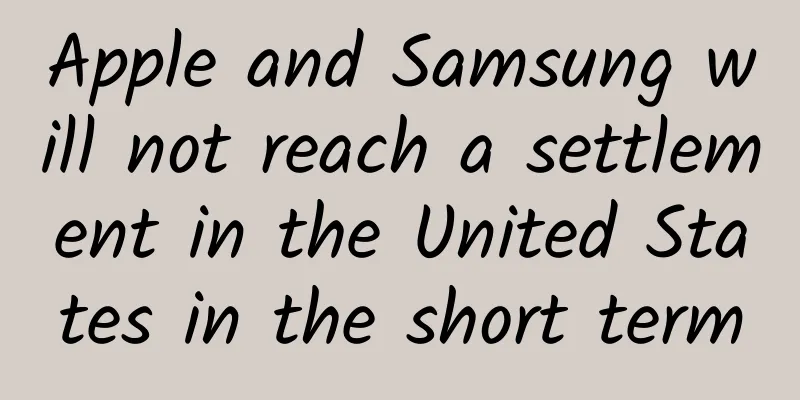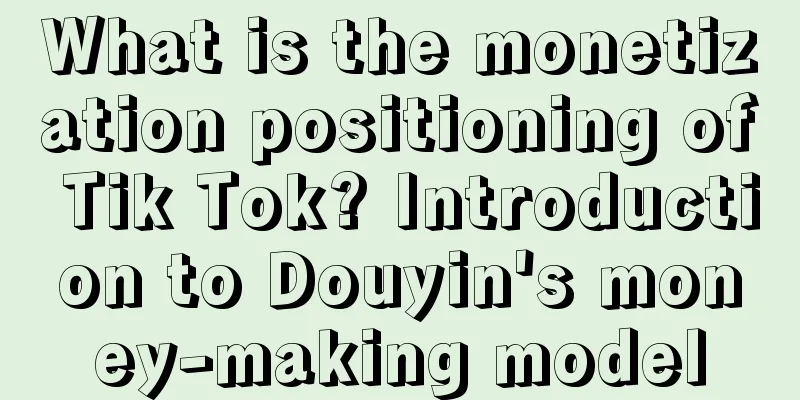Apple and Samsung will not reach a settlement in the United States in the short term

|
On the morning of August 7, Apple and Samsung announced on Tuesday that they have agreed to abandon all lawsuits regarding smartphone and tablet patents outside the United States, but the two companies' current lawsuits in the United States will continue. In addition, the agreement between the two companies does not include any patent licensing terms. The patent licensing dispute between Apple and Samsung has lasted for more than three years. In addition to the United States, the two companies have sued each other in the United Kingdom, Germany and Australia. Industry insiders hope that according to this settlement agreement, the long-standing legal dispute between Apple and Samsung can be quickly concluded, and the problems in the United States will not be excluded. However, some legal experts said that such a settlement agreement is unlikely to be reached in the short term, and the litigation between the two companies will continue for several years. But at present, it seems that Apple and Samsung's enthusiasm for resorting to law has greatly decreased. "In the U.S., disputes between companies will also become smaller," said Michael Carrier, a professor at Rutgers Law School. "Both companies realize that litigation will not bring them the returns they expected." The lawsuit between Apple and Samsung is not just about monetary damages, although damages are often part of the case. The real battle between the two companies is over the mobile device market. Apple is currently the second-ranked smartphone manufacturer, with two-thirds of its revenue coming from iPhones and iPads. Samsung is the world's largest smartphone manufacturer. Both companies want to dominate the smartphone and tablet market, which sold about 1.2 billion units in 2013. Currently, both companies face challenges from emerging market competitors such as Xiaomi. The lawsuit between Apple and Samsung dates back to April 2011. At that time, Apple filed a patent infringement lawsuit against Samsung in the Northern District Court of California, claiming that Samsung copied the appearance and experience patents of the iPhone and iPad. At that time, Steve Jobs was still the CEO of Apple. However, he began to take sick leave in January 2011 and handed over the CEO position to Tim Cook in August. According to Jobs' biography, the lawsuit against Samsung and Android systems was largely due to Jobs' personal wishes. As a winner of Toutiao's Qingyun Plan and Baijiahao's Bai+ Plan, the 2019 Baidu Digital Author of the Year, the Baijiahao's Most Popular Author in the Technology Field, the 2019 Sogou Technology and Culture Author, and the 2021 Baijiahao Quarterly Influential Creator, he has won many awards, including the 2013 Sohu Best Industry Media Person, the 2015 China New Media Entrepreneurship Competition Beijing Third Place, the 2015 Guangmang Experience Award, the 2015 China New Media Entrepreneurship Competition Finals Third Place, and the 2018 Baidu Dynamic Annual Powerful Celebrity. |
Recommend
Sony vs. Samsung: Which 55-inch 1080p TV is better?
From a business perspective, the TV business is ob...
91 Ten Articles: NIO’s first overseas stop is Norway, Wuling Hongguang is exported to Lithuania at a high price of 20,000 euros
1. Li Bin, founder, chairman and CEO of NIO, once...
The most comprehensive operation knowledge and operation framework in 2019!
For newbies in operations, in order to learn oper...
The Chinese version of Tesla, NIO ES8, is launched. Can consumers buy into its high-end positioning?
In the field of new energy vehicles in China, the...
If you don’t eat spring bamboo shoots, how can you know the feeling of spring? Here is just one reason to persuade you to eat more spring bamboo shoots!
Pickled bamboo shoots with preserved vegetables, ...
Baidu shows one-year results: three major connection mechanisms form a synergy effect
Last year, Baidu CEO Robin Li announced that Baid...
iOS14.5.1 causes mobile phone performance throttling. What should I do if my phone becomes slow?
After users of iPhone 11 and iPhone 12 series mod...
Experts: Windows Phone is the most secure mobile system
[[155337]] Although Microsoft's Windows Phone...
SEM promotion effect is not good, what aspects should be adjusted?
Why does the problem of poor SEM promotion effect...
Fission activity gameplay and logic
Nowadays, more and more mobile Internet products,...
The day after tomorrow, a mysterious "X" will appear on the moon's surface...
Original title: "A date with the starry sky丨...
How much does it cost to join the Changde Building Materials Mini Program? What is the price for joining the Changde Building Materials Mini Program?
How much does it cost to join the Changde Buildin...
Product dog operation meow, don’t tell me you don’t know how to do “user portrait”
At NetEase, the User Research Department is respo...
Do this before promoting your information flow to double your conversion effect!
If you want to do something well, you must prepar...
32 Lectures on Aggression: How to Live a Powerful and Free Life? (end)
32 Lectures on Aggression: How to Live a Powerful...









